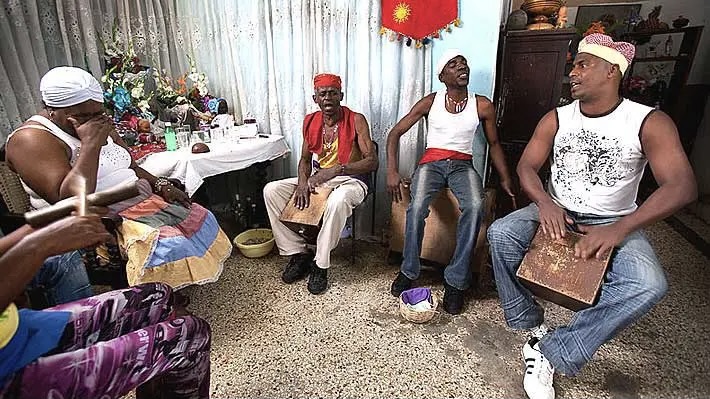In a report published in December 2022, the State Department placed the island on its list of “Countries of Special Concern” in which it also placed others such as Nicaragua, China, Russia, Iran or Vietnam.
Washington affirms that in the Caribbean country there is no “religious freedom”, but Cuban religious leaders who spoke to CLARIDAD, have a different opinion, assuring that this is an excuse to damage the image of the Caribbean country and justify the imposition of more sanctions.
“I think we should start by asking what they mean by religious freedom. Because if religious freedom is understood as the freedom of each person to live their faith, to believe, to participate and enrich their spiritual life, there is no problem with that here. Here we have many different religions and each person is free to participate in the spaces, in the services, in the enrichment of their spiritual life,” says Izette Samá Hernández, Executive Coordinator of the Martin Luther King Memorial Center (CMMLK), a Christian-inspired macroecumenical organization based in Havana.
Kirenia Criado Pérez, theologian and pastor of the Quaker Friends Church of Havana, a Protestant Christian community whose origins date back to the 12th century and which arrived in Cuba in the middle of the last century from the United States, is of the same opinion.
“Look, I think that this is also a media mechanism to undermine the image that Cuba has in the world regarding its commitment to rights and its commitment to upholding dignity…this testimony that it has earned worldwide. So, I believe that this is yet another element to continue damaging Cuba’s image and also to continue justifying the many years of blockade we have had so far,” Criado Pérez commented on Washington’s decision to include her country on the list.
The administration of President Joe Biden accuses Cuban authorities of “regularly persecuting” religious leaders and subjecting them to detention, interrogation, and threats. The White House has referred to the several religious leaders who were arrested during the protests of July 11, 2021, which took place in Havana and other provinces of the country.
However, members of the Christian community in Cuba deny that the arrests were motivated based on religion.
According to Samá Hernández, who has been actively involved in attending to the religious leaders arrested on July 11, the arrest of these people “has to do with their involvement and not because they were religious leaders or because they had a life of faith.”
Criado Pérez, meanwhile, argues that situations of social tension such as those that occurred two years ago on the island “have been given a religious connotation to hide the political strategies that these religious groups hide,” something that for her is a regional strategy to “place a political campaign in the key of a religious campaign to dismantle processes and movements in Latin America.”
The inclusion in this list, exposes Cuba to possible sanctions from Washington such as the cancellation of scientific and cultural exchanges and the blocking of loans or export restrictions, a scenario that, they condemn, will only aggravate the living conditions of Cubans.
“[Being on this list] deprives the Cuban people of economic facilities, but also cultural and spiritual facilities, freedom to travel, to participate in other spaces. I believe that all the sanctions against Cuba affect the people the most, not anyone else,” says the CMMLK Coordinator.
In Cuba, there are more than 1,850 recognized religious organizations and institutions with a membership of more than 1,500,000 people. It is estimated that most of the population considers itself Catholic or practices Afro-Cuban religion, although in recent years Protestant churches have gained strength.
Samá Hernández believes that it is necessary to see this reality up close to understand it. “I think the best way is to come, see and participate [in] the experience of the Cuban Church or the practice of other religions. Those who have not had that experience may, unfortunately, believe that there is no religious freedom, but many of the people who come realize that the spiritual experience that our communities, our churches, our organizations, associations have, is alive.”
For many of those who practice some religion on a daily basis in Cuba, the inclusion of their country on a list of countries where there is allegedly no religious freedom makes no sense – beyond the US government’s aspirations to harm the Cuban people.
“Yes, there is religious freedom in Cuba. I am someone who has decided to live in Cuba and to carry out my pastoral vocation and my theological work in this country, and I have lived it with freedom, I live it with freedom [now], and I am sure that I will live it with freedom in Cuba [in the future],” emphasizes the pastor and theologian.
This article was first published at CLARIDAD in Spanish.





